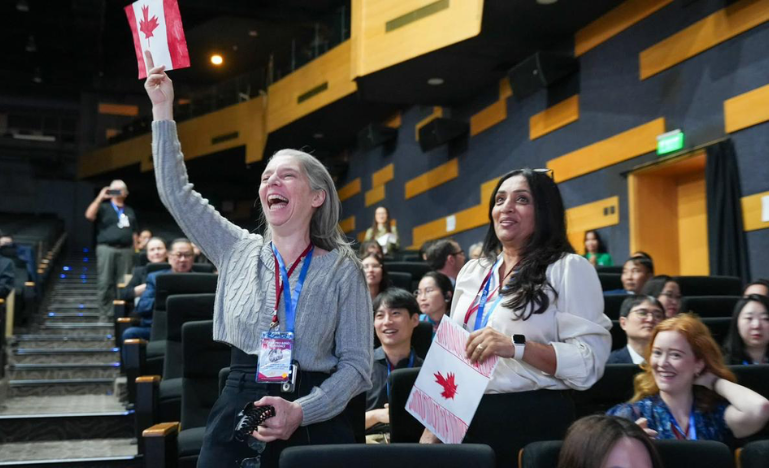Sharing knowledge on trauma-informed lawyering
CBA members travel to Mongolia, leave inspired by efforts to create a just and fair legal system for those most vulnerable

When we were asked to go to Mongolia to present on trauma-informed advocacy, truthfully, we both had to do some reading to more fully appreciate the history and culture of our intended host country.
Situated between Russia and China, Mongolia is a beautiful and rugged country with cascading mountains and the expansive Gobi Desert.
Neither of us had any idea what to expect from the capital city of Ulaanbataar. But when we arrived after more than 24 hours of travel, we were greeted with genuine appreciation for having travelled all the way from Canada to represent the Canadian Bar Association at the 13th Asia Pro Bono Conference and Access to Justice Exchange. These two events, which ran concurrently in October, were attended by more than 300 legal professionals, academics and civil society representatives from 27 countries and territories.
At the opening ceremony, we were treated to performances by renowned opera singers, dancers, and music played on traditional Mongolian instruments, including the horsehead fiddle (morin khuur). The gala event was held at a ger camp on the edge of the Gorkhi-Terelj National Park, featuring a range of entertainment, including an otherworldly throat-singing performance, a contortionism exhibit, and some exceptional contemporary music.
The conference included numerous knowledge-sharing sessions and offered unique insight into the divergent A2J barriers faced in jurisdictions across Asia. We learned that in Mongolia, the lack of internet access is among the top A2J barriers, given the large nomadic population.
One participant from Laos described the cultural barriers she’s encountered, sharing her story of having been denied entry to the courtroom for lack of “proper women’s clothing.” Her colleagues proudly told those gathered that she had pushed her way past the guards to gain access, where she has since become a champion among the country’s thriving pro bono community. They have successfully advocated for the inclusion of mandatory annual pro bono hours as a condition for renewing their license in Laos.
We presented our own workshop to an audience of lawyers, judges and public administrators. Our focus was on the neuroscience of trauma, and the ways that trauma, if not addressed in a systemic way across the justice system, can become a stand-alone A2J barrier.
We began by describing how complex trauma can physically alter the brain and undermine effective testimony in adversarial proceedings. We shared our tips, which have been developed over 55 collective years of practice experience in the refugee/anti-violence fields, representing clients whose trauma symptoms (e.g. gaps in memory, inability to focus, inexpressive or scant detail, muted affect) too often lead to findings of non-credibility in adversarial proceedings.
We also discussed the various types of accommodations that can be requested and ways to facilitate better testimony in cases involving trauma.
Finally, we discussed how to advocate for nuanced, scientific, and humane credibility assessments across the justice sector, which is our shared passion project.
Our session invited participants to work through several real-life case scenarios in a United Nations-style open forum, which was conducted in multiple languages with simultaneous interpretation. For that, we thank the International Development Law Organization, which was a joint sponsor of this event.
Participants impressed us with their understanding of key concepts, and we were delighted to be approached by so many after the session who wanted to discuss unique issues that could slow the advancement of trauma-informed practice in their jurisdictions.
Our last day in Mongolia was spent at the Mongolian Bar Association, where delegates from several other jurisdictions joined us. We discussed ways to engage lawyers to do pro bono work. This included a one-on-one meeting with the president of the bar association, during which he requested an update on the CBA's efforts to enhance collaboration among private lawyers, public sector lawyers, and judges.
Our week in Mongolia is not one we will soon forget. We left inspired by people from countries striving for the same thing we are — a just and fair legal system, particularly for those who are most vulnerable.


